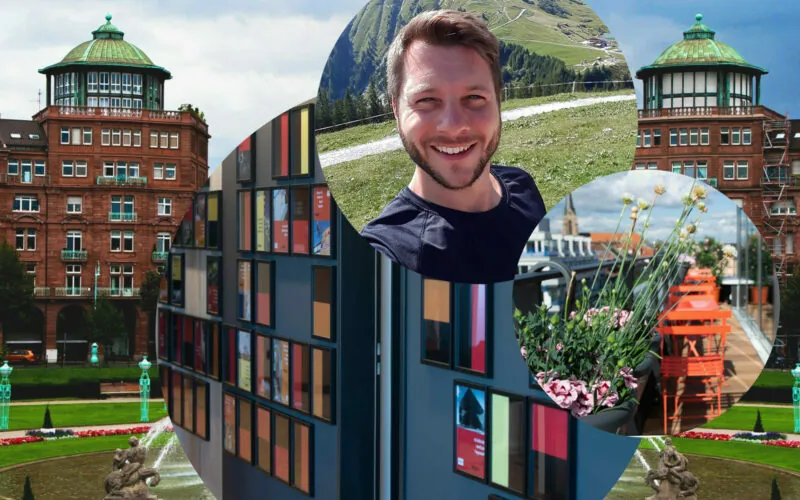From industry to consulting: Scenes from the everyday life of a project manager
April 29, 2020

April 29, 2020

In January 2020, Fabian Littau made the jump from an internal role in classic industry to consulting and he can now grow with us, and especially with our customers. For it’s precisely in times like the current Covid19 crisis that digitalization projects are becoming ever more important. His experience helps him understand our customers correctly and make them fit for the future with regard to digitalization. Fabian tells us how all this works and depicts scenes from his everyday life of a project manager in this interview.
Before your change to valantic, you held an internal role in classic industry. For us, it would be exciting to hear what you think the differences are and how your initial experiences as an external consultant have been.
I see the biggest differences in the speed with which we approach topics and projects here. Cycles in the classic industry from which I come are entirely different. In consulting, the concern is to work in an extremely focused manner – always project-related and goal-oriented. Very little is lost through consideration of the organization or diplomatic concerns in the background. I think that’s really good, because then you can focus completely on solutions.
Our state-of-the-art methods and tools help us here. We work largely in agile fashion on projects and we use various digital channels in order to communicate efficiently and transparently internally on the team and externally with our customers.
And of course the offices here are crazy, practical, yet completely beautiful! The offices offer us so much, e.g. free selection of where you want to work. You can meet other people to talk about a particular topic or look for a quiet corner if that’s what you want.
What motivated you to make this change?
In the end, there were several reasons:
On the one hand, I wanted to work on different things, with a focus on digital topics, and also to work in a different role. I found what I was looking for at valantic: As a project manager, I can focus entirely on the topic of digitalization, for that’s the core of the valantic business model. I found that exciting and that was very important to me.
Another great incentive was that as an external consultant, I am involved in many industries and with many customers. There is a lot of variety in my work and I have the opportunity to think my way into new business models.
How has your work-life balance changed?
My work-life balance has changed a whole lot.
In recent years, I traveled a lot due to my activities in international export, international sales and marketing; I wasn’t home a lot.
That’s all changed now. I can do my work in the office or from my home office with no problem; I have the flexibility to decide where I would like to work. Of course I’m also on-site at the customer’s, but I am traveling much less.
What I find extremely positive is that I can be extremely flexible with regard to how I design the rhythm of my days and weeks. For example, I like to work in the mornings, take a break in the afternoon, then keep on working later in the afternoon, take a short break for the children, then do more work in the evening. In classic industry, you really can’t do this; normally there you work straight through and stop at a particular time. But the flexibility and the selection of where I want to work has changed my work-life balance in a very positive way.
How do your current customers profit from the fact that until recently, you were seeing things through the customer’s eyes?
I understand both sides, and I’ll probably never really be able to stop seeing things as the customer does. And that’s a good thing. The projects that I’m handling for valantic now are ones that I previously handled from the customer side or I was a part of the project team and I had a lot of contact with external consultants.
The customer regards the project as just part of a larger development process at the company. As the customer, you usually have many projects running in parallel, and you have to consider how you will prioritize these. For the consultant, of course the customer’s project is the first priority. This knowledge helps me classify topics and approaches appropriately.
And I can also very easily put myself into the shoes of the affected employees. When a new system is introduced, many tasks and flows change, and you have to take the reservations and insecurities seriously – I know that from my own personal, recent experience. Change at the customer’s company is big and not exclusively with regard to the system. I think it’s important to look at the whole picture. And I can do this well because I know both worlds.
What, in your opinion, does one have to do to develop from an internal role into external consulting?
I think the most important thing is to be open to new topics and processes and to bring along a lot of curiosity; that is, the will to learn new things. In external consulting, the focus is not on problems, but rather on solutions.
High spirits and a positive attitude also help when something gets stuck or there are tricky tasks in a project.
Don't miss a thing.
Subscribe to our latest blog articles.